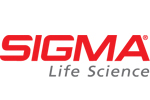Co-Located Conference Agendas2nd International Conference of the Flow Chemistry Society | ADME & Predictive Toxicology Europe | Chemistry Outsourcing | Formulation and Solubility | Fragment Based Lead Discovery | Structural & Computational Chemistry | 

Tuesday, 13 March 201208:00 | Registration | |
Pharmacogenomics and Drug Safety | Session Sponsors |
| | 09:00 |  | Keynote Presentation New Developments in Pharmacogenomics and Drug Safety
Magnus Ingelman Sundberg, Professor/Head, Karolinska Institutet, Sweden
The lecture will give an update in the field of current and future pharmacogenomic biomarkers of importance for prediction of drug metabolism, drug action and adverse drug reactions focusing on the most clinically relevant examples. |
| 09:30 | Safety Pharmacogenomics
Urs Meyer, Emeritus Professor, Biozentrum/University of Basel, Switzerland
This lecture will give an update on the presently required mandatory pre-prescription tests for safety biomarkers and their clinical application and also discuss the recommended non-mandatory tests or still disputed applications of safety pharmacogenomics. | 10:00 |  | Keynote Presentation The Role of In Vivo Transgenic Approaches in the Development of Safer Drugs
Roland Wolf, Director, University of Dundee, United Kingdom
The dramatic advances in molecular genetics are now enabling the creation of transgenic models which much more closely resemble pathways of drug metabolism and chemical toxicity in man. Of particular relevance is the ability to assess the consequences of genetic polymorphism, human-specific metabolites and drug:drug interactions. |
| 10:30 | Coffee Break and Networking in the Exhibition Hall | 11:15 | The Role of Defence and Adaptation in Drug-Mediated Liver Toxicity
Christopher Goldring, Senior Lecturer, University of Liverpool, United Kingdom
Chemical stress is a potentially deleterious state induced by exposure of cells to non-physiological levels of chemically reactive species (CRS) and it can play a role in off-target adverse drug reactions (ADRs). Whilst we are beginning to understand some of the key events that influence how the liver adapts to exposure to chemicals, we are still some distance from understanding how this actually pertains to Man. This talk will review the field and highlight key recent developments and the most significant challenges to our understanding as to whether defence and adaptation influences individual susceptibility. | 11:45 | Rationalising Reactive Toxicity: From Chemistry to Adverse Effects
Mark Cronin, Professor, Liverpool John Moores University, United Kingdom
Many drug toxicities are brought about through reactive metabolites. The chemistry associated with reactivity will be described and will allow for the prediction of adverse effects and systemic toxicity. | 12:15 |  Technology Spotlight: Technology Spotlight:
ADME Studies in Knockout Rats Lacking Key Drug Transporters
Heike Lehrmann, Tactical Marketing Manager, Sigma Aldrich
| 12:30 | Lunch | 13:30 | Poster Viewing Session | |
Genotoxicity and Toxicokinetic Modeling |
| | 14:15 | When is a Genotoxin not a Genotoxin?
Richard Walmsley, Professor, University of Manchester, United Kingdom
The in vitro genotoxicity tests were conceived to predict carcinogenicity in novel chemicals. However a reproducibly positive in vitro genotoxicity test result does not necessarily imply a human cancer hazard. This talk explores how chemicals can be saved. | 14:45 | A Pharma-Wide Approach to Predicting the Genotoxic Properties of Aromatic Amines
Michael Kranz, Computational Chemist, GlaxoSmithKline, United Kingdom
In this talk, the reliability of the Ames test for AA’s, the outcome from a pharmacy-wide data-sharing consortium for building block-sized AA’s and a new predictive model will be presented. | 15:15 | Coffee Break and Networking in the Exhibition Hall | 16:00 | Biotransformation: Still a Bottleneck for In Vitro Kinetic and Dynamic Approaches?
Sandra Coecke, Laboratory Leader, Joint Research Center, Germany
Essential input parameters for physiologically-based toxicokinetic and toxicodynamic modelling rely on the availability of reliable and relevant human metabolic competent sources, modelling the process of xenobiotic biotransformation. | 16:30 | In Silico Predictive Toxicology: Where are we at and Where are we Going?
John Dearden, Professor, Liverpool John Moores University, United Kingdom
In silico toxicology has made great strides in recent years, and both the range of endpoints and the accuracy of predictions have improved. There is, however, still much room for improvement. Mechanistic and toxicokinetic approaches are now being used that are allowing better predictions to be made. | 17:00 | Drinks Reception |
Wednesday, 14 March 2012 |
ADME and Metabolomics |
| | 09:30 |  | Keynote Presentation Metabolomics in Clinical Drug Development
Frank Gonzalez, Chief, National Institutes of Health, United States of America
High throughput metabolomics can be used to identify biomarkers in serum or urine that can stratify populations during clinical trials. This could lead to greater success in drug development by predicting individuals susceptible to adverse drug reactions and drug efficacy. |
| 10:00 | The Xenometabolome – Implications and Opportunities for Health and Disease
Richard Barton, Research Fellow, Imperial College London, United Kingdom
The relationship between man and ecologies formed of both commensal and pathogenic bacteria presents complex metabolic features which range beyond simple host-organism metabolic properties. This presents both problems and opportunities for advancing our approach to disease pathogenesis and treatment. | 10:30 | Coffee Break and Networking in the Exhibition Hall | |
Regulatory Issues in ADME |
| | 11:15 |  | Keynote Presentation Rationalizing ADME in the Current Regulatory and Business Environment
Robert Guttendorf, Senior Consultant, DMPK, Aclairo Pharmaceutical Development Group, United States of America
Ever-changing regulatory requirements and increasingly constrained budgets have mandated that drug discovery and development become more streamlined and efficient than ever. ADME has played a critical role in enhancing these processes and must continue to evolve to improve them further. |
| 11:45 |  | Keynote Presentation Metabolites and Safety, the MIST and ICH-M3 Guidance and their Impact on ADME
Gerhard Gross, Head, Lundbeck Pharma, Germany
Content of FDA MIST guidance and the ICH-M3 guidance is presented. Industrial strategies, including the Lundbeck approach, regarding these guidances are outlined and exemplified through recent studies. New models in this area and their application are discussed as well. |
| 12:15 | Lunch | 13:30 | Poster Viewing Session | |
New Therapeutic Targets and ADME Optimisation in Drug Design/Discovery |
| | 14:15 |  | Keynote Presentation Regulation of Cytochorome P450s and Nuclear Receptors by microRNAs and its Toxicological Implications
Tsuyoshi Yokoi, Professor, Kanazawa University, Japan
The current knowledge on the miRNA-dependent regulation of drug metabolizing enzymes and nuclear receptors and its potential toxicological implications will be presented with the following new topics; human HNF4a and miR-24/miR-34a, human PPARa and miR-21/miR-27b, human ARNT and miR-24, and plasma miRNA profiles of hepatocellular injury, cholestasis and steatosis. |
| 14:45 | In Vitro and In Vivo Models to Develop New Therapies for Renal Diseases
Frederick Tam, Reader/Associate Professor, Imperial College London, United Kingdom
Cytokines are important in the pathogenesis of renal diseases, such as glomerulonephritis and diabetic nephropathy. In vitro study of renal cells and glomeruli and in vivo rodent models of renal diseases are invaluable in development of as new therapies. | 15:15 | Coffee Break and Networking in the Exhibition Hall | 15:45 | Characterization of Uptake Transporters in Cell-Based Penetration Models of Blood-Brain Barrier
Monika Vastag, Laboratory Head, Gedeon Richter Plc, Hungary
This talk will compare the expression and activity of uptake transporters involved in the physiology of BBB and transportation of drugs to the brain. In-house generated data will be presented in models of blood-brain barrier like the triple co-culture model using brain derived cells, the MDCK-MDR1 and the recently introduced VB-Caco-2 cultures. | 16:15 | Predicting Oral Drug Likeness
Amiram Goldblum, Head, Hebrew University of Jerusalem, Israel
We present a new method to score molecules for their oral drug-likeness which is based on distinguishing their properties from others, and prioritizing them by an Index called OB-DLI Orally Bioavailable Drug Like Index). | 16:45 | Close of Conference |
|


 Add to Calendar ▼2012-03-13 00:00:002012-03-14 00:00:00Europe/LondonADME and Predictive Toxicology EuropeADME and Predictive Toxicology Europe in Munich, GermanyMunich, GermanySELECTBIOenquiries@selectbiosciences.com
Add to Calendar ▼2012-03-13 00:00:002012-03-14 00:00:00Europe/LondonADME and Predictive Toxicology EuropeADME and Predictive Toxicology Europe in Munich, GermanyMunich, GermanySELECTBIOenquiries@selectbiosciences.com